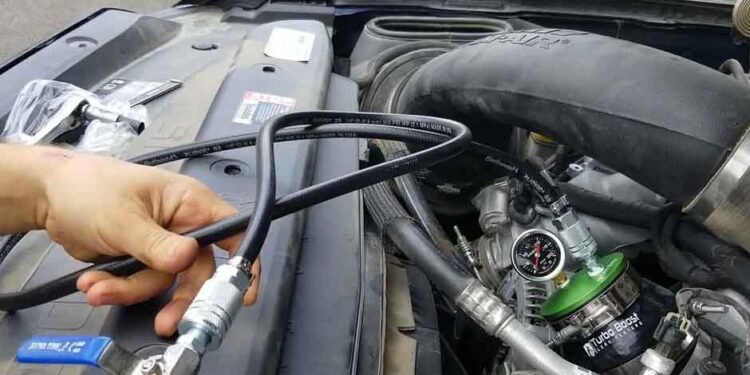Introduction to Engine Tuning
Engine tuning is an art and science that enhances your vehicle’s performance and efficiency. It’s about fine-tuning the heart of your vehicle to meet your specific needs, whether that’s better fuel economy, more power, or a bit of both. This exploration dives into the benefits, various methods, and how to strike the perfect balance between performance and efficiency.
The Basics of Engine Tuning
Power Output
Power output, measured in horsepower or kilowatts, is one of the most talked-about aspects of engine performance. It represents the engine’s ability to convert fuel into motion and, consequently, determines how fast a car can accelerate. Higher power output means more energy is available to propel the vehicle forward, leading to faster acceleration times. Tuning can increase power output by optimizing the air and fuel mixture, ensuring that the engine burns fuel more efficiently and produces more power.
Torque
Torque, measured in Newton-meters or pound-feet, refers to the rotational force the engine generates. It plays a critical role in determining how well a vehicle can pull or push loads, affecting its performance during acceleration, especially from a standstill. Higher torque means the vehicle can accelerate more forcefully, making it feel more responsive. Through tuning, adjustments can be made to the timing of fuel injection and ignition, enhancing the engine’s torque output at different speeds.
Engine Responsiveness
Engine responsiveness is about how quickly the engine can react to the driver’s inputs, such as pressing the accelerator pedal. A responsive engine will have minimal delay between the driver’s action and the vehicle’s acceleration. This quality is essential for a satisfying driving experience, as it makes the vehicle feel more connected and under the driver’s control. Tuning can improve engine responsiveness by refining the engine control unit (ECU) settings, which govern how the engine responds to various inputs — making professional car ecu tuning a worthwhile investment.
Benefits of Engine Tuning
Enhanced Performance
The most apparent benefit of engine tuning is the significant boost in a vehicle’s performance. Tuning adjusts various parameters within the engine’s control unit, leading to improvements in horsepower and torque. This means quicker acceleration, higher top speeds, and a more responsive throttle. The vehicle becomes more agile and can navigate through traffic more effortlessly, providing a driving experience that is both exhilarating and satisfying. For enthusiasts and everyday drivers alike, the enhanced performance that comes with tuning makes driving not just a means of transportation, but a genuinely enjoyable activity.
Improved Fuel Efficiency
Contrary to the common misconception that more power means higher fuel consumption, engine tuning can actually improve a vehicle’s fuel efficiency. By optimizing the air-to-fuel ratio and ignition timing, tuning ensures that fuel combustion is as efficient as possible. This means that less fuel is wasted, and more of its energy is converted into motion. For the driver, this translates to fewer trips to the fuel station and more money saved over time. Additionally, improved fuel efficiency has environmental benefits, as it leads to lower emissions of carbon dioxide and other pollutants, contributing to a smaller carbon footprint for the vehicle.
Increased Lifespan of Engine Components
Engine tuning also has a positive impact on the longevity of engine components. By optimizing the engine’s operating conditions, tuning can reduce the strain on various parts, such as the transmission, bearings, and pistons. This is particularly true when tuning is focused on achieving a more efficient combustion process, which can lead to lower operating temperatures and less mechanical stress. As a result, components wear out more slowly, reducing the need for frequent repairs and replacements. This not only saves money in the long term but also ensures that the vehicle remains reliable and performs well for years to come.
Methods of Engine Tuning
Chip Tuning
This method involves modifying the electronic control unit (ECU) chip in your car to improve performance. It’s one of the most common and effective tuning methods.
ECU Remapping
Remapping is a more advanced form of tuning that involves changing the software within the ECU to enhance engine performance. It offers more customization than chip tuning.
Aftermarket Modifications
There are numerous aftermarket parts available for those looking to enhance their vehicle’s performance further. These range from air intake systems to exhaust upgrades.
Balancing Performance and Efficiency
The Tuning Sweet Spot
The tuning sweet spot is that optimal set of engine parameters where the vehicle achieves maximum performance without sacrificing fuel efficiency. This involves fine-tuning aspects such as the air-to-fuel ratio, ignition timing, and, in turbocharged engines, boost pressure, to ensure that the engine operates efficiently under various conditions. The goal is to extract more power from each drop of fuel, thereby enhancing performance while keeping fuel consumption in check.
Finding this sweet spot is not a one-size-fits-all process; it varies from one vehicle to another and depends on the engine’s characteristics and the driver’s demands. It requires a careful balance that often comes from experience and experimentation. Advanced diagnostic tools and software can aid in monitoring engine performance and making precise adjustments. The result is a vehicle that responds more eagerly to the throttle, accelerates faster, and potentially uses fuel more sparingly. For example, owners of certain heavy-duty pickups having diesel engines, devices like the tuner 6.7 cummins can offer a powerful solution. These give more control over engine behavior and can help uncover that sweet spot without the usual guesswork. It’s a practical way to boost responsiveness and efficiency at the same time, without pushing the vehicle too hard.
Considerations for Sustainable Tuning
Sustainable tuning takes into account the long-term health of the vehicle and its environmental impact. It’s about making modifications that enhance performance without causing undue stress to the engine or significantly increasing emissions. Here are some key considerations for sustainable tuning:
- Longevity: Ensure that the tuning does not push the engine beyond its safe operating limits. Excessive increases in power can lead to premature wear and tear or even catastrophic failure. Sustainable tuning focuses on improvements within the engine’s capacity to handle, thereby extending the life of its components.
- Emissions: While tuning for performance, it’s essential to remain mindful of the vehicle’s emissions. Increasing power output can sometimes lead to higher levels of harmful exhaust gases. Sustainable tuning practices strive to keep emissions within legal limits, using technologies like catalytic converters and particulate filters to minimize environmental impact.
- Fuel Quality: The type of fuel used can significantly affect both performance and efficiency. Higher octane fuels can support more aggressive tuning by reducing the risk of knock, allowing for advanced ignition timing and higher compression ratios. Tuners should consider the recommended fuel type for their specific tuning strategy to optimize performance without compromising engine health.
- Regular Maintenance: A well-maintained vehicle is more likely to respond positively to tuning. Regular checks and maintenance ensure that the engine and its components are in good condition, which is crucial for both performance and efficiency. This includes routine oil changes, air filter replacements, and ensuring that the fuel system is clean and functioning correctly.
Balancing performance and efficiency through tuning is an art that requires knowledge, skill, and a responsible approach. By focusing on the tuning sweet spot and adhering to sustainable tuning practices, it’s possible to enjoy the thrill of enhanced performance without sacrificing fuel efficiency or the vehicle’s longevity. This balanced approach not only benefits the driver but also contributes to a more sustainable relationship between our driving pleasures and the environment.
Conclusion
Engine tuning offers a pathway to not just more exciting driving but also more efficient and potentially environmentally friendly motoring. Whether you’re a DIY enthusiast or prefer the assurance of professional help, tuning your engine can unlock its full potential.












